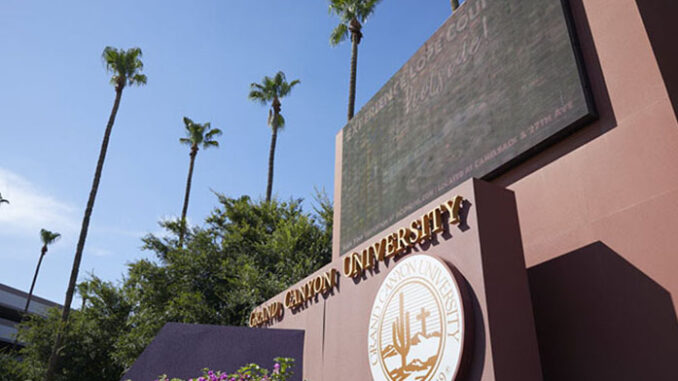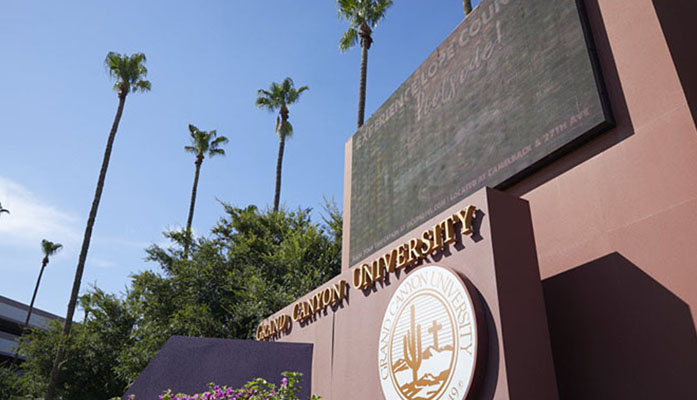
The United States Court of Appeals for the Ninth Circuit has handed a significant win to Grand Canyon University, finding that the U.S. Department of Education acted unlawfully by applying the incorrect legal standard in determining GCU’s nonprofit status. The Court then remanded the case back to the Department of Education.
Despite GCU’s nonprofit approvals from the State of Arizona, the Internal Revenue Service, the Arizona Board for Private Postsecondary Education and the Higher Learning Commission, the Department refused to recognize the University’s lawful nonprofit status going back to 2019.
In a 3-0 decision, the Ninth Circuit held that the Department exceeded the authority granted to it under the Higher Education Act in its unprecedented decision against GCU and remanded it back to apply the correct standard — the traditional private inurement test — which the IRS has already approved and the Department has not argued was an issue in its decision against GCU.
In plain terms, the private inurement test allows nonprofits to buy goods and services from for-profit companies at fair market value. The evidence before the Department unequivocally confirmed that the University paid fair market value for those services. Multiple independent valuation studies, which were requested by the Department, confirmed this years ago.
Grand Canyon University says that in “light of the Ninth Circuit’s ruling, the IRS 501(c)(3) tax-exempt status and independent valuations, we are hopeful that the Department will act in good faith and render a quick decision recognizing the university’s nonprofit status.”
The ruling that the Department of Education exceeded its authority follows a similar favorable ruling in a case filed by the Federal Trade Commission (FTC).
The Arizona district court dismissed the FTC’s claims against GCU, holding that the agency lacks authority to enforce the FTC Act over entities that are not organized for their own profit or that of their members. The FTC has since amended its complaint and GCU is hopeful the court will again dismiss the FTC’s claims.
Grand Canyon University released the following statement:
America’s founders ensured sufficient checks and balances were in place between the legislative, judicial and executive branches of government to prevent any one entity or body from gaining too much power. What we have seen in several recent actions – court cases such as Loper Bright/Chevron and Jarkesy and rejections by both Congress and the Supreme Court of the executive branch’s unilateral efforts to broadly forgive hundreds of billions of dollars in student loans – is their intent to curtail overreach of the administrative state and to keep agencies accountable to governing law.
When GCU’s Board of Trustees decided to return the university to its historical status as a nonprofit institution in 2018, it did not envision years of hard-fought litigation against federal agencies. GCU had operated as a nonprofit for most of its history, and the Trustees’ decision to return the university to its nonprofit roots was meant to ensure GCU’s long-term future as Arizona’s preeminent private, affordable Christian university.
In the six years since that nonprofit transaction went into effect, GCU is thriving as a university – which ED incorrectly predicted would not be the case when it refused to acknowledge the university’s lawful nonprofit status. Enrollment continues to increase at GCU amidst a backdrop of declining college attendees nationwide; the university has continued to expand its academic offerings, adding 171 new programs, emphases and certificates since 2018; GCU continues to invest in its inner-city surrounding neighborhood; the university has extended the tuition freeze on its Phoenix campus to 17 years, which is unheard of higher education; and it has invested an additional $600 million in academic infrastructure, bringing the total in the past 16 years to almost $2 billion on a campus that is the largest residential campus among all private universities in the U.S. and is rated by niche.com as the 21st nicest campus in the country. All of this benefits students and families who are looking for higher education alternatives taught from a Christian worldview perspective that are affordable to all socioeconomic classes.
While the university remains exceedingly proud of what it achieved during its short stint as a for-profit institution, building up GCU from the brink of bankruptcy into the largest Christian university in the country, nonprofit status best allows the University to accomplish its goals around research, grant writing, development, being full members of the NCAA, etc.
Today’s decision is a long-awaited correction to the Department’s unlawful application of a standard that improperly denied GCU of its nonprofit status, and we are hopeful for a quick affirmation of the university as a nonprofit institution.

